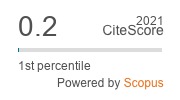A Combined CNN-LSTM Deep Learning Architecture Designed to Predict Power Consumption
Abstract
Currently, the increasing human population and technological developments have raised the power consumption rate in household appliances in real-world. Due to limited power resources, it becomes a challenging task to minimize the power consumption. The excessive power consumption affects the power generation systems and economic growth of the country. Thus, prediction of power consumption has become an important research topic to improve the performance of power generation system. Currently, the power consumption forecasting using machine learning has gained huge attraction from research community, but the traditional approaches suffer from uncertainty, volatility, and user’s behavior. Thus, deep learning-based approaches are widely adopted to deal with these issues. In this work, we present an end-to-end model where first, we present a data pre-processing technique to normalize the data and imputing the missing values. In next phase, we present a CNN-LSTM model and incorporated a bidirectional LSTM model to improve the forecasting performance by taking the advantage of forward and backward learning of bidirectional LSTM. The proposed approach is tested on UCI power consumption dataset for individual and household appliances. We compare the obtained performance with existing techniques in terms of RMSE, MSE, MAPE and correlation coefficient. Finally, we explore the comparative analysis to show the robustness of proposed deep learning assisted power consumption forecasting approach.




